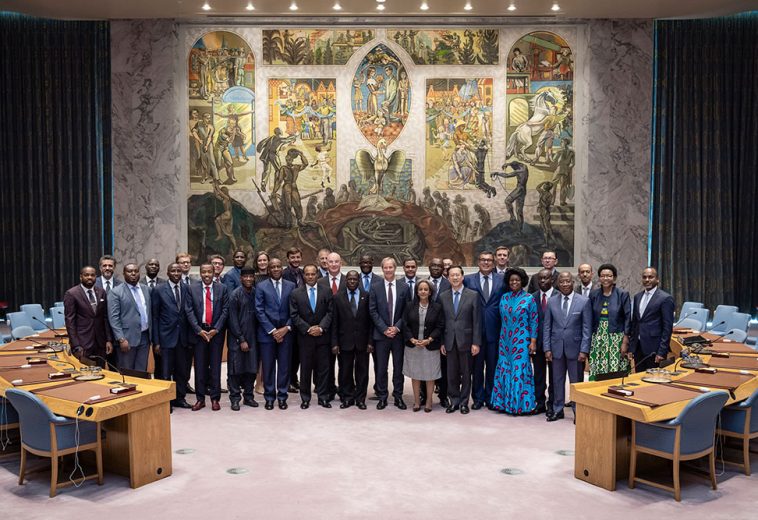A revolution has speedily unfolded and it is the smartphone revolution. This surge in mobile technology is not just about connecting people; it’s transforming entire economies, empowering individuals, and fostering innovation at an unprecedented pace. While the continent still grapples with challenges, the impact of smartphones on Africa is undeniable, acting as a powerful catalyst for progress across numerous sectors.
For decades, Africa lagged in technological advancement. Limited access to landlines and the high cost of internet connectivity hampered communication and information sharing. However, the affordability of smartphones, coupled with expanding mobile network coverage, has bridged this digital divide. A report by GSMA Intelligence in 2022 highlights this, stating, “Sub-Saharan Africa is the world’s fastest-growing mobile region, with the number of unique mobile subscribers forecast to reach 510 million by 2025.” This phenomenal growth signifies a dramatic shift, empowering millions to access information, connect with loved ones, and participate in a globalized world.
Also, the rise of mobile money platforms like M-Pesa in Kenya and MTN Mobile Money in Uganda exemplifies the transformative power of smartphones in Africa. These platforms have revolutionized financial inclusion, allowing individuals without access to traditional banking systems to send and receive money, pay bills, and even save. According to a 2023 World Bank report, “The number of registered mobile money accounts in Sub-Saharan Africa has grown to over 1.3 billion, with transaction value exceeding $1.4 trillion annually.” This surge in mobile money usage empowers entrepreneurs, eliminates the need for carrying cash, and fosters a more secure and transparent financial ecosystem.
Furthermore, Smartphones are not just communication tools; they are powerful platforms for innovation and social change. Agnes Mwakatuma, a social entrepreneur from Tanzania, exemplifies this. She states, “With my smartphone, I can document the challenges faced by my community and share them with a wider audience. This has helped us secure funding for clean water projects and educational initiatives.” Social media platforms and mobile applications have become breeding grounds for African ingenuity. Farmers in remote villages can now access real-time market prices, healthcare workers can utilize mobile diagnostics to improve rural healthcare delivery, and educational apps are bridging the knowledge gap, particularly in underserved areas.
The impact of smartphones on education in Africa is profound. Previously, access to quality educational resources was limited by geographical location and economic resources. Now, with smartphones, students can access online learning platforms like Khan Academy or utilize educational apps to supplement their classroom learning. Affordable mobile data plans further enhance this potential, allowing students to learn at their own pace and explore diverse educational content. Dr. Mary Bennet, an education specialist working in Ghana, observes, “The use of smartphones in classrooms has sparked a new level of engagement among students. They can now actively participate in discussions, research topics more effectively, and connect with students from across the continent.”
However, despite the undeniable benefits, the smartphone revolution in Africa is not without its challenges. Limited access to electricity and reliable internet connectivity remain hurdles in some regions. Furthermore, concerns regarding digital literacy, cybersecurity threats, and the potential for misinformation require careful consideration. Governments and tech companies have a crucial role to play in addressing these challenges. Initiatives promoting digital literacy programs, expanding internet infrastructure to underserved areas, and implementing robust cybersecurity measures are essential for ensuring a safe and inclusive digital space.
Smartphone revolution in Africa is still in its early stages, but we will agree that the potential for continued growth and development is immense. As mobile technology becomes more affordable and accessible, we can expect to see even greater innovation across various sectors. The continent’s youthful population, coupled with their boundless creativity and entrepreneurial spirit, positions Africa to become a global leader in the digital age. As Kingsley Osei, a young tech entrepreneur from Nigeria rightfully opted, “Smartphones are putting the power to create change in the hands of everyday Africans. This is just the beginning of a digital revolution that will reshape our continent.”
The smartphone revolution in Africa is a story of empowerment, innovation, and boundless potential. From bridging the digital divide to fostering financial inclusion and educational opportunities, the impact of mobile technology is undeniable. While challenges remain, the future holds immense promise. With continued investment in infrastructure, digital literacy initiatives, and responsible technological development, Africa stands poised to leverage the power of smartphones and unlock its full potential on the global stage.


